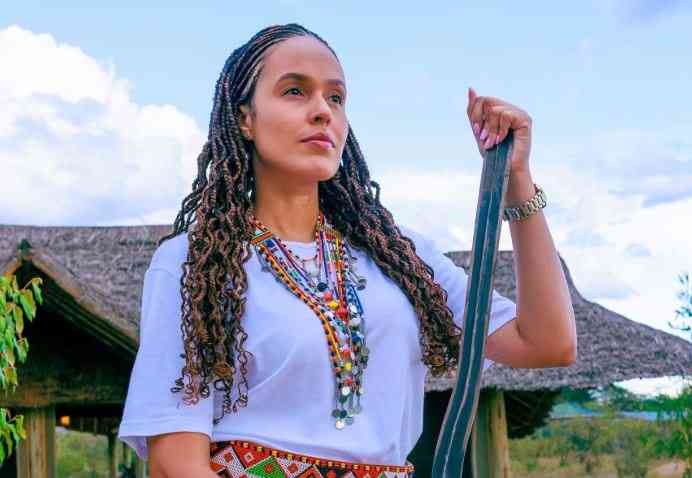
Schools are set to open soon. Let's reflect on learning, the operational part of the Competency-Based Curriculum (CBC).
That we learn to hate learning in school, of all places is a fact. We learn to dislike seeking new knowledge through reading textbooks or journals.
When did you last buy a book and not a motivational or self-help one? Or when did you last read a book without an exam on the horizon?
After several years in school as both a student and teacher, I have agonised over the hatred of learning. Will CBC change that? Why do we hate learning?
One reason is monotony. While we have five senses, rarely do we utilise all of them to learn. We mostly use the hearing sense, yet few teachers or lecturers would make great musicians.
We rarely smell, yet we all use perfumes! We rarely touch in class, even in sciences. We see but often from a distance, mostly the black or whiteboard.
We rarely use videos or take students outdoors to observe. Simply put, we rarely make learning natural. Ever noted how children play and enjoy?
Think of it, our kids are digital natives and will fix your phone or computer without much fuss. The next day, we give them pen and paper, and they are supposed to smile and celebrate.
Two is that the content is often alienated from us. We learned about interlocking spurs in Switzerland but they are in Kenya, in my village to be exact.
We learnt why we put water in a car but no one opened the bonnet to show us the radiator! We drew diagrams of the Rift Valley, but our teachers never took us to see it, although it was 10 minutes away!
First choice
We learnt about Vasco da Gama and Jan Van Riebeck but never knew the name of the mzungu whose house ended up being our primary school!
We learnt about Zinjanthropus, Cro-Magnon and other early men. Yet we know so little about modern man. Why do we hate each other, fall in love or even die?
Three, a majority of teachers and dons are not teachers, they just wanted a job!
No university should admit anyone for B.Ed (Bachelors of Education) unless it's the first choice!
In addition, too much specialisation denies us the joy of exploration and learning. The future lies in interdisciplinary studies. Think of biochemistry, biophysics, and genetic engineering among others. We should be intellectually promiscuous.
If we engaged all the senses and became intellectually promiscuous, learning would be fun, and we would continue learning long after school enriching our lives.
However, all is not lost. You can continue learning without foraging in books and journals.
The latter are forums in which members of various academic cults hide their knowledge from the public.
Yet knowledge, like the gospel, gains more value when shared. Sharing also increases the chances that someone will put that idea into use.
One of the best sources of new knowledge is observation. It is not as hard or as intensive as reading textbooks or journals - just your eyes, and a bit of analysis, looking for trends and patterns.
A few examples. It's the worst time to be a man in Kenya. Women, because of the perception that they are honest, are taking over our jobs in butcheries, golf courses, banks and M-Pesa kiosks.
Noted that most new private secondary schools are girls-only.
Want more? Why do we flock to the Coast during holidays to be baked by heat and humidity and boast about it?
Why do we spend the night on the road at Gilgil when an empty and more scenic road through Njabini and Ol Kalou would take us to Nakuru?
Why would a couple in love need a marriage licence? Why is alcohol suitable for those over 18, after 17 years and 364 days?
Why is the affluent Muthaiga and poverty-stricken Mathare Valley separated by a mental hospital? Why are we more at home with foreigners than other Kenyans?
Local foods
Why is the car invented in 1886 still a status symbol? Why do we stick to local foods no matter how educated we become?
Why do students prefer to study social sciences when laws of supply and demand indicate more jobs are in science, technology, engineering, and mathematics (STEM)?
Let me stop there. Can you share your most recent observations? You may not read the textbook or journal but there is plenty of new knowledge floating around.
Observe or listen to others, even the dull and ignorant to quote Desiderata. Ask entrepreneurs; they have made their money by observing.
It's more efficient and profitable. Are you looking for a great idea to make money? It won't be in journals or textbooks.
Remember patents, trade secrets, and other methods of protecting your ideas?
 The Standard Group Plc is a multi-media organization with investments in media platforms spanning newspaper print
operations, television, radio broadcasting, digital and online services. The Standard Group is recognized as a
leading multi-media house in Kenya with a key influence in matters of national and international interest.
The Standard Group Plc is a multi-media organization with investments in media platforms spanning newspaper print
operations, television, radio broadcasting, digital and online services. The Standard Group is recognized as a
leading multi-media house in Kenya with a key influence in matters of national and international interest.

